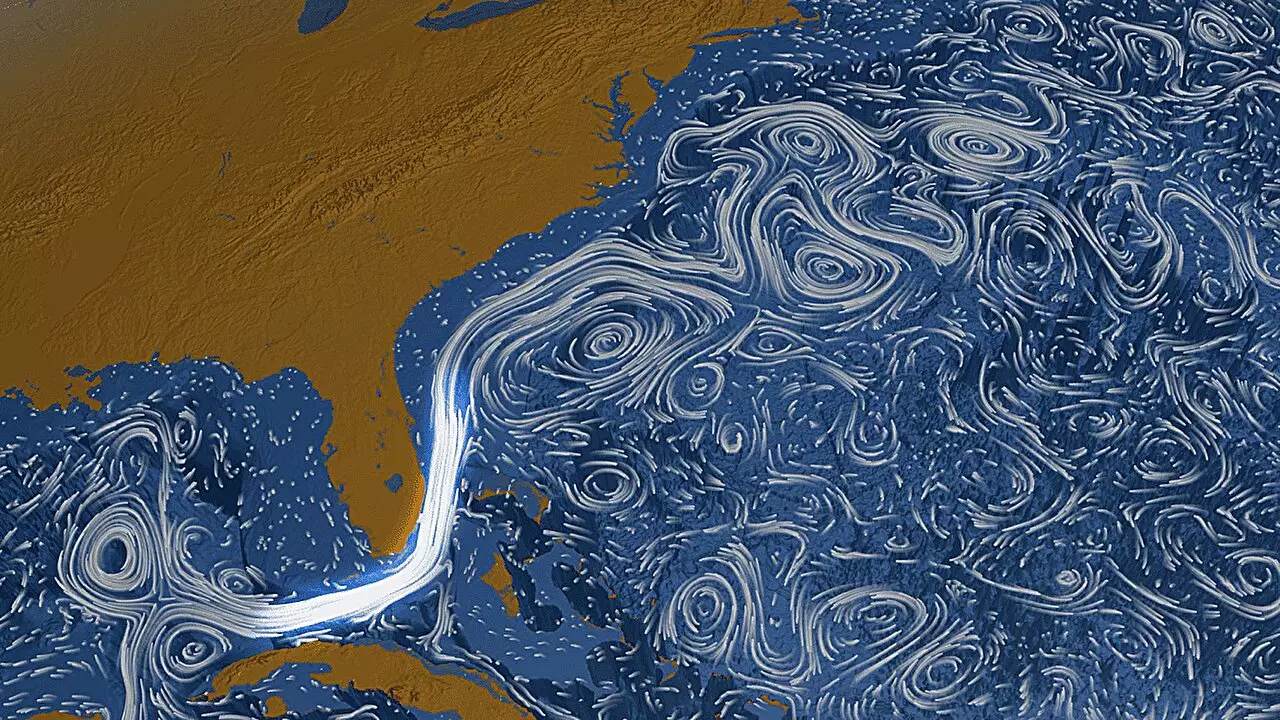In the face of daunting climate projections, the dynamics of ocean circulation have become a focal point for scientists keen on understanding the evolving interactions between our oceans and atmospheric conditions. One particularly significant element of this global conversation is the Atlantic Meridional Overturning Circulation (AMOC), which plays a critical role in regulating climate by transporting heat, freshwater, and nutrients throughout the Atlantic basin. Recent studies suggest that AMOC may be weakening due to climate change, igniting concerns about potential impacts on weather patterns, sea levels, and disaster events across the globe. However, observational data from the Florida Current—a key component of the AMOC—raises questions about the reliability of this assumption.
The Florida Current, which begins in the Gulf of Mexico and flows through the Florida Straits into the Atlantic, is one of the fastest ocean currents, known for its ability to influence weather and climate significantly. Researchers from NOAA’s Atlantic Oceanographic and Meteorological Laboratory, alongside the University of Miami and the National Oceanography Center in the U.K., have closely monitored this current for over four decades as part of their efforts to gauge the overall health of the AMOC. The Florida Current’s role cannot be understated, as it significantly impacts coastal sea levels and flooding, thus affecting local communities and ecosystems.
According to current climate models, including those from NOAA, a marked slowdown of the AMOC could be expected, potentially reducing its effectiveness by up to 45% by the century’s end. However, the foundational data supporting this claim remains under scrutiny, leading scientists to probe deeper into the Florida Current’s behavior over time.
Long-Term Observational Data: A Double-Edged Sword
Adopting a meticulous approach, researchers have utilized NOAA’s Western Boundary Time Series (WBTS) project to maintain a record of the Florida Current’s transport. Utilizing a 120-km underwater cable paired with regular hydrographic cruises, the project has constructed the longest continuous record of a boundary current. This dataset spans back to 1982 and includes valuable measurements from the present day, making it an invaluable tool for understanding long-term trends within the Florida Current.
A crucial finding from their ongoing studies is that the measurements of the Florida Current required adjustments for the gradual changes in the Earth’s magnetic field. Initially, data appeared to indicate a decline in the current’s strength, which could suggest a corresponding decline in the health of the AMOC. However, after implementing necessary corrections to the data, scientists revealed that the Florida Current has, in fact, remained remarkably stable over the past forty years, casting doubt on previous claims of a significant decline.
The findings of this recent study significantly alter our understanding of the AMOC’s current state. The new evidence indicates a 40% reduction in the perceived negative trend for the AMOC’s strength associated with the Florida Current. As such, it posits that the AMOC may not be weakening at a rate as substantial as previously believed. Dr. Denis Volkov, the lead author of the study, highlights that while climate models anticipate a slowdown, the lack of substantive observational evidence supports the notion that the Florida Current has not reflected this potential change yet.
This presents a pivotal moment in the discussion: if the AMOC is indeed weakening, could it be occurring without a corresponding alteration in the Florida Current? This complexity illustrated by the research calls for a more nuanced approach to understanding ocean dynamics and emphasizes the need for a long-term observational strategy.
The implications of maintaining high-quality observational data such as that collected from the Florida Current are profound. They serve not only to clarify the state of the AMOC but to guide future climate models towards more reliable forecasts. Ultimately, as climate variability continues to unveil its complexities, sustained, deliberate observations will remain vital in deciphering the intricate relationships that dictate our planet’s weather patterns, sea levels, and ecological balance.
As we forge ahead in research and observation, the scientific community must remain vigilant, questioning assumptions and reevaluating previous conclusions in light of new information. The stability of the Florida Current offers a moment of cautious optimism; however, it is vital that we continue to probe the depths of oceanic science to reveal the full spectrum of climate interactions in our changing world.


Leave a Reply